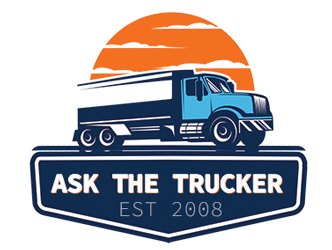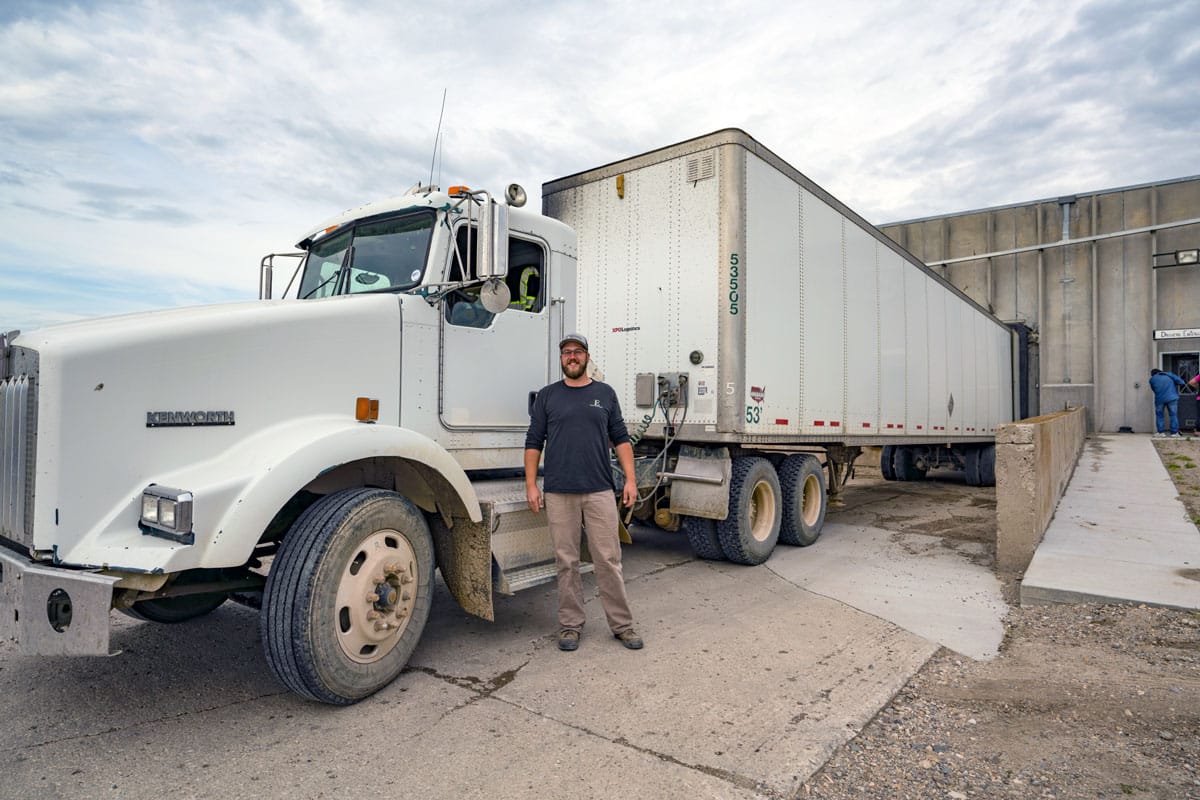MCS 90 Endorsement 101: Requirements & Motor Carrier Compliance
If you’re running a trucking business that crosses state lines or handles hazardous materials, you’ve probably heard of the MCS 90 endorsement—though, let’s be honest, plenty of folks are still scratching their heads over what it actually does. It’s a government-mandated form that basically ties together your insurance and federal rules, but the details can get a little murky.

The MCS 90 endorsement is a federal form attached to certain trucking insurance policies to guarantee minimum financial responsibility for interstate motor carriers. Unlike a typical insurance policy, the MCS 90 serves as a promise to the government and the public that certain liabilities will be paid, even if your regular policy has exclusions.
Whether you need this endorsement depends on a few things: how you buy your insurance, if you cross state lines, and whether you’re hauling hazardous materials. Self-insured motor carriers skip the MCS 90 since it’s something insurance companies provide, so knowing where you stand is pretty important for staying out of regulatory hot water.
- The MCS 90 endorsement is a must-have federal form for interstate trucking companies, guaranteeing minimum liability coverage
- Requirements hinge on your insurance setup, interstate travel, and whether you’re moving hazardous stuff
- If you’re self-insured, you don’t need the MCS 90 since it’s issued by insurance companies
MCS 90 Endorsement Fundamentals
The MCS-90 is basically the government’s way of making sure motor carriers pay for public damages they cause. It’s tied to certain trucking operations and comes with non-negotiable coverage minimums based on what you’re hauling.
What Is the MCS 90 Endorsement
The MCS-90 endorsement isn’t extra insurance coverage—it’s a guarantee to the government and the public that damages will get paid if a motor carrier causes an accident. Insurance companies attach this to your policy as proof you’re financially responsible.
This endorsement is there to protect the public, not the trucking company. If a carrier causes environmental damage but doesn’t have the right coverage, the insurance company will pay out first but can come back and get reimbursed by the carrier.
The FMCSA regulations require this endorsement under the Federal Motor Carrier Act of 1980. It’s kind of a backup plan when your regular insurance doesn’t cut it.
Plenty of carriers think the endorsement gives them more protection, but really, the MCS-90 doesn’t add coverage for the company itself.
Who Needs an MCS 90 Endorsement?
Three things decide if you need the MCS-90: how you get your insurance, where you drive, and what you haul. Self-insured carriers don’t need it since the form comes from insurance companies anyway.
Interstate Operations: Any for-hire motor carrier running across state lines for business needs an MCS-90. If you’re crossing state borders, you’re on the hook.
Hazardous Materials: Private or for-hire carriers hauling hazardous materials—even within one state—need this endorsement. If you use portable tanks or hopper-type vehicles over 3,500 gallons, you’re included too.
The Federal Motor Carrier Safety Administration enforces these rules for anyone with federal operating authority.
Key Legal Requirements and Applicability
Policy limits shift depending on what you’re hauling and where you’re hauling it. FMCSA sets the minimums, and you’ve got to have them through your insurance policy.
Minimum Coverage Limits:
| Operation Type | Required Coverage |
|---|---|
| Non-hazardous cargo | $750,000 |
| Hazardous materials/oil/waste | $1,000,000 |
| Large tanks over 3,500 gallons | $5,000,000 |
Interstate carriers have to meet these federal liability minimums. The MCS-90 is there to make sure the public gets paid, even if there’s a gap in the carrier’s regular insurance.
For-hire carriers have it tougher than private ones. If you’re hauling for money across state lines, you need this federal guarantee that you can pay up if something goes wrong.
The endorsement only kicks in if your regular insurance doesn’t cover public damages.
Coverage, Compliance, and Insurance Impacts
The MCS 90 is a surety obligation—it’s not extra coverage, but more of a backup promise to pay when your insurance falls short. Motor carriers have a few ways to meet these requirements, but the rules are strict.
How MCS 90 Works with Trucking Insurance
The MCS 90 attaches to your liability insurance policy. It’s not extra coverage, just a safety net if your main policy denies a claim or doesn’t pay enough.
Insurance companies have no duty to defend under MCS 90—they just pay final judgments within the set limits. That’s different from regular liability insurance, where they usually provide a legal defense.
Owner-operators and for-hire carriers need this if they’re running interstate. The endorsement covers negligence, even if:
- The vehicle isn’t listed on the policy
- You’re not on an authorized route
- You’re outside your territory
- You violate some policy condition
If the insurer pays out under the endorsement, they can come after the carrier to get reimbursed. So, in the end, the carrier is still on the hook financially.
Coverage Scenarios and Limitations
The MCS 90 only applies in certain scenarios, and there are plenty of limits. It’s per accident, not per person, so the total payout can’t go over the policy limit no matter how many people are hurt.
Coverage applies when:
- Your regular insurance denies a claim because of a violation
- Leased vehicles aren’t properly covered
- There are exclusions in your policy
- There’s a gap in your primary coverage
But it doesn’t cover:
- Employee injuries on the job
- Cargo loss or damage
- Anything above the federal minimums
- Claims that aren’t public liability
Coverage requirements change depending on what you’re hauling. Standard freight? $750,000 minimum. Portable tanks or hazardous materials? It jumps to $1 million or even $5 million, depending on the details.
The endorsement doesn’t boost your policy limit. Courts have said MCS 90 coverage is strictly limited to the endorsement amount—it’s not an open checkbook for the public.
Financial Responsibility Methods for Motor Carriers
If you’re in interstate commerce, there are three ways to meet the federal financial responsibility rules. Each one hits the minimum protection required by law.
Insurance with MCS 90 Endorsement Most carriers just go with commercial liability insurance and the MCS 90. Insurance companies look at your risk and set up a policy that fits the federal standards. This way, the insurer takes on the immediate risk.
Surety Bond Options Some carriers get a surety bond instead. Bonds guarantee payment if there’s a judgment, but you’ll have to pay the surety company back. It’s really for carriers with deep pockets.
Self-Insurance Programs Big carriers sometimes qualify for self-insurance. That means putting up securities or cash reserves equal to the required coverage. You’ll need regulatory approval, and the financial bar is set pretty high.
Here’s what you need, at minimum:
- $750,000 for regular freight
- $1 million for oil and certain hazardous stuff
- $5 million for radioactive or really dangerous cargo
For-hire carriers have to keep coverage active at all times. If they let it lapse, their interstate rights are suspended—no second chances.
Frequently Asked Questions
The MCS-90 is a kind of financial safety net, making sure interstate and hazmat carriers have the minimum liability coverage the feds require. It’s meant to protect the public, but it comes with a bunch of rules and exceptions depending on how you operate.
What is the purpose of the MCS-90 endorsement for commercial motor vehicles?
The MCS-90 endorsement is designed to protect the public from the risks that come with commercial trucking. It’s a federal backup plan that makes sure judgments against carriers get paid.
It kicks in so injured people can get compensation, even if your regular insurance tries to dodge the claim. This came about after the Motor Carrier Act of 1980, when lawmakers got tired of carriers dodging financial responsibility.
It’s focused on public liability from negligent operation, not employee injuries or cargo claims.
How does the MCS-90 endorsement affect liability coverage in the event of an accident?
The MCS-90 works more like a surety than standard insurance. It only comes into play if your main policy doesn’t cover the accident or the coverage isn’t enough.
It guarantees payment, even if you’ve violated your policy or there are exclusions. The insurance company can’t wriggle out of paying a final judgment within the endorsement’s limits.
But if they pay out because of a policy breach, they can turn around and collect from the carrier. Also, it’s per accident, not per person.
What are the requirements for motor carriers to obtain the MCS-90 endorsement?
Motor carriers running interstate or hauling hazardous materials have to get the MCS-90. Whether you need it depends on if you leave your home state and what you’re transporting.
The minimum is $750,000 for non-hazardous cargo. Oil and certain hazardous materials bump it up to $1 million.
If you’re hauling other hazardous stuff or radioactive materials, you’re looking at $5 million. The endorsement gets attached to your commercial auto liability policy.
How do the financial responsibility regulations for motor carriers tie into the MCS-90?
The MCS-90 helps carriers prove they meet federal financial responsibility rules. It’s one of three ways to show you’ve got enough insurance.
You could also use a surety bond or go the self-insurance route. The MCS-90 is only required if you’re using an insurance policy to meet the federal standard.
The feds require coverage that pays final judgments for bodily injury or death. The MCS-90 makes sure you can’t avoid that, no matter what your policy says.
In what circumstances can a carrier be exempt from needing the MCS-90 endorsement?
Self-insured carriers don’t need the MCS-90 since insurance companies issue it. If you only operate within your state, you might be off the hook too.
Companies that don’t haul hazardous stuff and never leave their home state usually don’t need the endorsement. It’s mainly for interstate and hazmat haulers.
If you use a surety bond instead of insurance, you can skip the MCS-90 as well—the bond does the same job.
What are the penalties for motor carriers operating without a valid MCS-90 endorsement?
Motor carriers really aren’t supposed to run interstate commerce without proper proof of financial responsibility. The Federal Motor Carrier Safety Administration expects you to have your endorsements sorted out if you want to stay registered.
If you skip the required endorsement, you could be looking at a license suspension—or even losing it altogether. Fines are definitely on the table, and you might find yourself unable to cross state lines until things are fixed.
Insurance companies that drop the ball on these endorsements aren’t off the hook either; they can get hit with regulatory penalties. And if a carrier doesn’t have the right coverage in place, their authority to operate can be put on hold until everything’s squared away.


